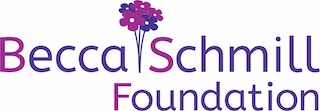
Anyone who has struggled to overcome addiction understands the powerful effect it has on the brain. What was once considered a matter of willpower is now understood to be a complex and chronic brain disease influenced by genetics, environment, and social and emotional factors. But despite the urgent need to develop new prevention and treatment options for addiction, little headway has been made by scientists and clinicians toward understanding this devastating disorder.”
MIT – McGovern Institute
What Everyone Needs To Know!
Unlike a decade ago, today’s drug supply is tainted with deadly synthetic opioids such as fentanyl which can be found in:
- Fake pills marketed as real prescription Adderall, Xanax, etc.
- Cocaine, meth, and other illicit drugs.
Addiction is a brain disease not a moral failing.
- Genetics and trauma are significant determinants.
- Stigma prevents drug users from getting the help they need.
More about Fentanyl:
- 50 times stronger than heroin and 100 times stronger than morphine.
- Since approximately 2015, deadly doses of fentanyl have been found in the illicit drugs supply in the U.S.
- Adolescents and young adults are targeted through social media apps with ads for Xanax, Adderall, Oxycontin, etc. that they believe are real, but turn out to contain deadly doses of Fentanyl
- Online dealers, called “Plugs,” often use emojis to communicate with buyers
If you or someone you know is using drugs, there are precautions that can be taken to reduce the chance of overdose. Read the basics of harm reduction here.
What BSF Is Doing
How to protect your child
- Create a Supportive Environment: Keep lines of communication open. Build a strong support network for them including other trusted adults – family members, teachers, or counselors, who they can turn to for guidance and support,
- Educate: Educate your children about the dangers of buying or accepting any drug (online or in person) that does not come from a legal pharmacy.
- Stay Informed and Stay Engaged: Stay informed about the trends and threats related to online drug sales, and regularly discuss internet safety with your children.
Conversation starters – Approach conversations with openness, empathy, and without judgment.
- Have you been in situations where there were opportunities for drug or alcohol use? Did you feel pressured?
- Why do you think some teens use drugs and alcohol? What other reasons might they have? What are some healthier options you can think of?
- I’ve heard about cases where drug dealers try to connect with teenagers on social media. Has anything like that ever happened to you or any of your friends?
If your child is using illegal drugs:
- Let them know you love them and you want to help them stay safe,
- Call the SAMHSA hotline: 1-800-662-HELP (4357),
- Look up local resources: youth/family recovery coach, therapist, pediatrician,
Discuss harm reduction. https://www.safeproject.us/safety-plan/
Helpful Resources
SAMHSA’s National Helpline: 1-800-662-HELP (4357). Free, confidential, 24/7 treatment referral and information service (English and Spanish) for individuals and families facing mental and/or substance use disorders.
Partnership to End Addiction: Launched a fentanyl resource hub that provides evidence-based information for parents and caregivers.
Learn2Cope: Peer led support network for families dealing with addiction and recovery.
MASSACHUSETTS RESOURCES
Needham, MA Parent Alanon Meeting: Mondays 7:00-8:30, https://zoom.us/j/99289460651, Meeting ID: 992 8946 0651, Password: 441337 Dial in: +1 929 205 6099
MA Substance Use Information and Education Help Line: 800-327-5050


